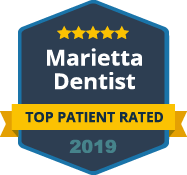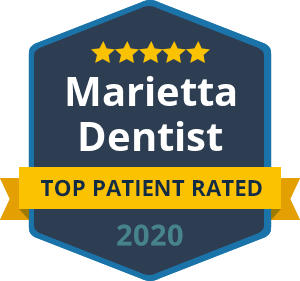What Triggers a TMJ Flare-Up? Understanding the Causes and Solutions for TMD

Do you experience jaw pain, headaches, or difficulty opening your mouth wide? These could be signs of a TMJ (temporomandibular joint) flare-up, a common issue for adults dealing with temporomandibular joint disorder (TMD). At Dental Care Kennestone in Marietta, we often see patients struggling with TMD-related discomfort and help them find relief through targeted treatments and lifestyle adjustments.
Let’s explore what triggers a TMJ flare-up, why adults are more prone to TMD, and what you can do to manage and prevent these episodes.
What Is TMJ Disorder (TMD)?
The temporomandibular joints connect your jawbone to your skull and are responsible for movements like chewing, speaking, and yawning. TMD refers to disorders that cause pain and dysfunction in these joints and the surrounding muscles.
Common symptoms of TMD include:
- Jaw pain or tenderness
- Clicking or popping sounds in the jaw
- Limited range of motion
- Headaches or earaches
While occasional discomfort is normal, frequent flare-ups can significantly impact your quality of life.
Top Triggers of TMJ Flare-Ups
- Stress and Clenching
Stress is a major culprit behind TMD flare-ups. When you’re stressed, you may clench your jaw or grind your teeth (a condition known as bruxism), putting excessive strain on your TMJ. - Poor Posture
Slouching, particularly when using phones or computers, can misalign your neck and jaw, leading to increased tension in the TMJ. - Chewing Habits
Chewing gum, biting your nails, or eating hard or chewy foods can overwork the jaw muscles, triggering pain and stiffness. - Teeth Grinding (Bruxism)
Grinding your teeth during sleep or while awake places constant pressure on the TMJ, leading to inflammation and discomfort. - Jaw Injury or Trauma
Past injuries to the jaw can make the TMJ more susceptible to flare-ups, even years after the initial trauma. - Hormonal Changes
Interestingly, women are more likely to experience TMD, potentially due to hormonal fluctuations that affect joint health. - Arthritis
Degenerative conditions like arthritis can affect the TMJ, causing pain and limiting jaw movement.
Why Are Adults More Prone to TMD?
As we age, wear and tear on the jaw joint can increase the risk of TMD. Other factors that make adults more susceptible include:
- Chronic Stress: Many adults juggle busy schedules, which can lead to jaw tension and stress-related clenching.
- Dental Work or Misalignment: Changes in bite due to missing teeth, dental restorations, or shifting teeth can contribute to TMD.
- Degenerative Joint Issues: Arthritis and other age-related conditions can affect the temporomandibular joint.
In Marietta and surrounding areas, adults often face these stressors daily, which is why TMD is a common concern at Dental Care Kennestone.
Managing and Preventing TMJ Flare-Ups
Here are some strategies to manage TMD and reduce the frequency of flare-ups:
- Practice Stress Management
Incorporate stress-relieving activities like yoga, meditation, or deep breathing exercises into your routine to reduce jaw tension. - Avoid Overworking the Jaw
Limit chewy, hard foods and avoid habits like gum chewing or nail biting. - Improve Posture
Maintain good posture, especially when using electronics, to reduce strain on your neck and jaw. - Consider a Custom Nightguard
At Dental Care Kennestone, we offer custom nightguards that protect your teeth from grinding and reduce stress on the TMJ. - Apply Heat or Ice
Hot or cold compresses can help alleviate inflammation and relax jaw muscles during a flare-up. - Seek Professional Care
If TMD symptoms persist, professional treatments like physical therapy, orthodontics, or TMJ-specific dental care may be necessary.
Why Choose Dental Care Kennestone for TMJ Treatment?
Located in Marietta, Dental Care Kennestone specializes in diagnosing and treating TMD. Our experienced team uses advanced technology and personalized care plans to address your unique needs. We serve patients from Marietta and the surrounding areas, offering effective solutions to help you find relief and regain comfort.
Take Control of Your TMJ Health
TMD doesn’t have to control your life. By understanding the triggers of TMJ flare-ups and seeking professional care when needed, you can enjoy better jaw function and a pain-free smile.
Ready to address your TMJ concerns? Contact Dental Care Kennestone today to schedule a consultation and start your journey to lasting relief.
Posted on behalf of Dental Care Center at Kennestone







